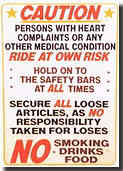Wednesday, May 25, 2011
Baraka's boyhood Newark
Re-reading the early chapters of poet Amiri Baraka's Autobiography (1984), A fascinating & surprisingly affectionate picture of Newark NJ in the late-forties, especially the subtle (& not-so-subtle) class differences within the large & growing African-American community, by economic status, skin tint, & family origin. What comes across is a community that, although mostly poor & seriously oppressed in a declining city, is culturally vital, diverse, has some strong internal structures, not yet at the crux of despair & explosive anger reached in the Sixties. The soundtrack music was terrific.
The story of Newark after World War II is the story of a number of Jersey's cities. As the manufacturing base disappeared, the white (& much of the black) middle class moved out, & the corrupt ruling white political machines adopted a siege mentality & channeled more of the shrinking economic pie out of the black communities, making the black political ward bosses more & more ineffectual & unable to deliver the basic goodies - patronage jobs & city services - to their constituents. To add injury to insult, the new Turnpike, Parkway & interstates sliced through urban neighborhoods with no regard for their inhabitants & distinct identities (the superhighways also set in motion the ruination of much of rural Jersey).
***
It's a sad irony that Jersey has at least a million more residents than 20 years ago (our population has never declined), we're now spread out all over the state, yet we lose congressional districts after every census. Among political scientist Larry J Sabato's many proposals (some quite radical) for changing the Constitution & reforming national government, the most logical one is for expanding the House of Representatives, where we now have too few representatives, each representing too many people. 100 years ago when the number was fixed at 435 congressional reps had relatively intimate connections with constituents, much more local.
"If a nation expects to be ignorant and free, in a state of civilization, it expects what never was and never will be." Thomas Jefferson
The story of Newark after World War II is the story of a number of Jersey's cities. As the manufacturing base disappeared, the white (& much of the black) middle class moved out, & the corrupt ruling white political machines adopted a siege mentality & channeled more of the shrinking economic pie out of the black communities, making the black political ward bosses more & more ineffectual & unable to deliver the basic goodies - patronage jobs & city services - to their constituents. To add injury to insult, the new Turnpike, Parkway & interstates sliced through urban neighborhoods with no regard for their inhabitants & distinct identities (the superhighways also set in motion the ruination of much of rural Jersey).
***
It's a sad irony that Jersey has at least a million more residents than 20 years ago (our population has never declined), we're now spread out all over the state, yet we lose congressional districts after every census. Among political scientist Larry J Sabato's many proposals (some quite radical) for changing the Constitution & reforming national government, the most logical one is for expanding the House of Representatives, where we now have too few representatives, each representing too many people. 100 years ago when the number was fixed at 435 congressional reps had relatively intimate connections with constituents, much more local.
Labels: what I'm reading














